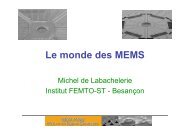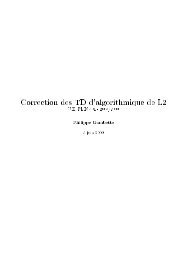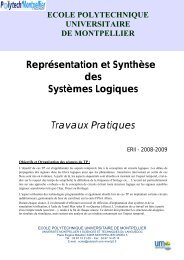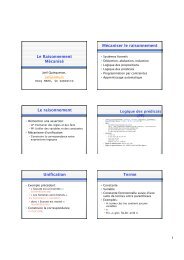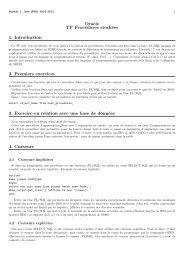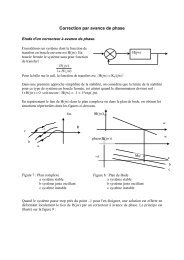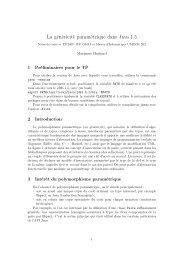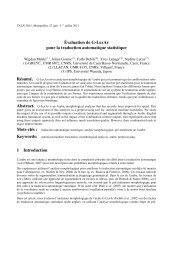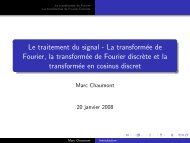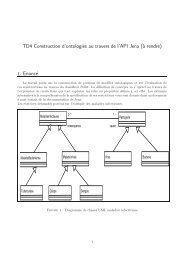Evaluating User Experience in Games: Concepts and Methods - Lirmm
Evaluating User Experience in Games: Concepts and Methods - Lirmm
Evaluating User Experience in Games: Concepts and Methods - Lirmm
You also want an ePaper? Increase the reach of your titles
YUMPU automatically turns print PDFs into web optimized ePapers that Google loves.
68 E.H. Calvillo-Gámez et al.<br />
The difference <strong>in</strong> control did have a f<strong>in</strong>al impact on the level of enjoyment.<br />
Answer<strong>in</strong>g the orig<strong>in</strong>al question, the difference between both <strong>in</strong>put devices is that<br />
the keyboard gives the player better control of the experience. Even though both<br />
devices let users perceive the game equally while mak<strong>in</strong>g it their own, it was the lack<br />
of control with the knob made the difference <strong>in</strong> the gam<strong>in</strong>g experience. Furthermore,<br />
there was such a lack of control with the knob that it actually marred the experience.<br />
That is, one of the CEGE was miss<strong>in</strong>g thus provid<strong>in</strong>g a negative experience.<br />
With this example, we have shown how to use the CEGE theory to objectively<br />
study different gam<strong>in</strong>g experiences. The theory provided an explanation of the<br />
outcome of the experience.<br />
4.7 Summary<br />
In this chapter, we have presented a novel approach to <strong>User</strong> <strong>Experience</strong>. We have<br />
argued that by look<strong>in</strong>g at the experience as a twofold phenomenon, process <strong>and</strong><br />
outcome, <strong>and</strong> by study<strong>in</strong>g the elements of the process it is possible to formulate an<br />
objective theory regard<strong>in</strong>g experience. We acknowledged that experience is <strong>in</strong>deed<br />
a personal endeavour, but there are also common elements <strong>in</strong> the experience that<br />
allow it to be shareable among different users.<br />
We presented the Core Elements of the Gam<strong>in</strong>g <strong>Experience</strong> (CEGE) theory<br />
to underst<strong>and</strong> the experience of play<strong>in</strong>g video-games. The theory describes those<br />
elements that are necessary, but not sufficient, to provide a positive experience<br />
while play<strong>in</strong>g video-games. The formulation of the theory us<strong>in</strong>g a grounded theory<br />
approach is presented. The theory can be summarised as follows: If the CEGE<br />
are present, then there is no guarantee that the experience would be positive, but<br />
it will not be negative; if they are miss<strong>in</strong>g, then the experience would be negative.<br />
A model that abstracts the relationship between the CEGE <strong>and</strong> a questionnaire to<br />
assess them was also presented.<br />
An example of us<strong>in</strong>g the theory to study two different experiences was also presented.<br />
Follow<strong>in</strong>g a hierarchical approach to f<strong>in</strong>d the element of the process that<br />
affected the outcome of the experience, we showed how to compare two different<br />
experiences. The results showed that <strong>in</strong> one case the lack of control produced a<br />
negative experience, while <strong>in</strong> the other example it produced a positive experience.<br />
The theory allowed to formulate <strong>and</strong> test an objective hypothesis regard<strong>in</strong>g the user<br />
experience of play<strong>in</strong>g video-games.<br />
The CEGE theory can be used to evaluate different experience. Future work can<br />
look at the theory to evaluate s<strong>in</strong>gle <strong>in</strong>stances of experience, <strong>in</strong>stead of compar<strong>in</strong>g<br />
two similar experiences. The CEGE theory can be used to assess experience <strong>in</strong> an<br />
objective way, it is not about assess<strong>in</strong>g the game or the user, but the <strong>in</strong>teraction of<br />
both of them. Further work can look at the elements that might be sufficient to obta<strong>in</strong><br />
a positive experience, or that complement the CEGE.<br />
Acknowledgements The authors wish to thank Dr. Sarah Faisal, Dr. Lidia Oshlyansky <strong>and</strong><br />
Charlenne Jennett for valuable comments on this work. Eduardo H. Calvillo-Gámez is sponsored<br />
by SEP-PROMEP.



